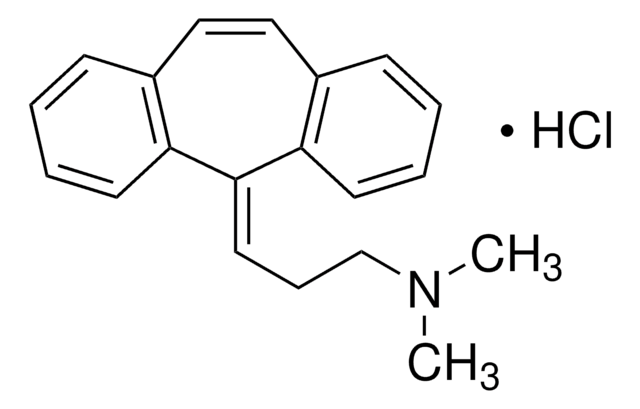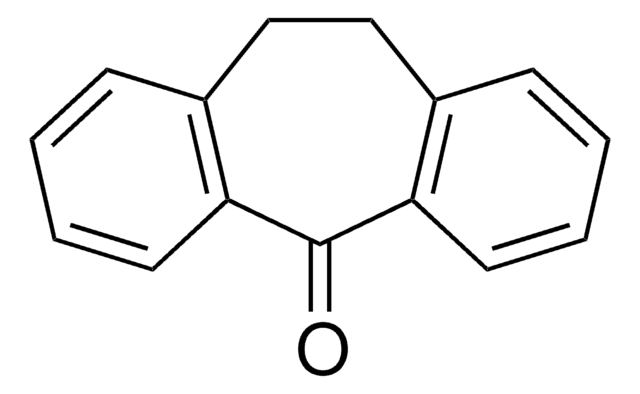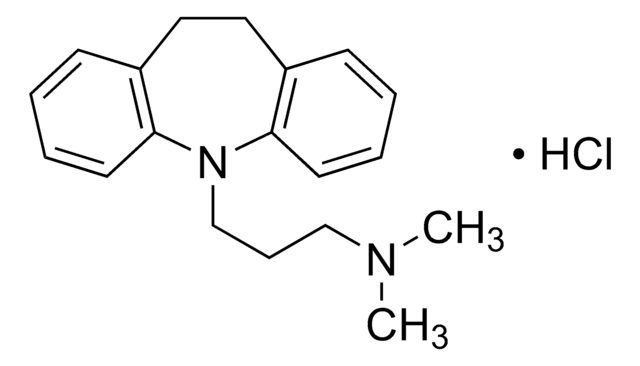1338007
USP
Imipramine hydrochloride
United States Pharmacopeia (USP) Reference Standard
Synonym(s):
10,11-Dihydro-N,N-dimethyl-5H-dibenz[b,f]azepine-5-propanamine hydrochloride, 5-[3-(Dimethylamino)propyl]-10,11-dihydro-5H-dibenz[b,f]azepine hydrochloride
About This Item
Recommended Products
grade
pharmaceutical primary standard
API family
imipramine
manufacturer/tradename
USP
application(s)
pharmaceutical (small molecule)
format
neat
SMILES string
Cl[H].CN(C)CCCN1c2ccccc2CCc3ccccc13
InChI
1S/C19H24N2.ClH/c1-20(2)14-7-15-21-18-10-5-3-8-16(18)12-13-17-9-4-6-11-19(17)21;/h3-6,8-11H,7,12-15H2,1-2H3;1H
InChI key
XZZXIYZZBJDEEP-UHFFFAOYSA-N
Gene Information
human ... SLC6A2(6530) , SLC6A4(6532)
Looking for similar products? Visit Product Comparison Guide
General description
Application
- Imipramine Hydrochloride Tablets
- Imipramine Hydrochloride Injection
- Desipramine Hydrochloride
- Clomipramine Hydrochloride
- Desipramine Hydrochloride Tablets
- Trimipramine Maleate
Biochem/physiol Actions
Analysis Note
Other Notes
signalword
Danger
hcodes
Hazard Classifications
Acute Tox. 2 Oral
Storage Class
6.1A - Combustible acute toxic Cat. 1 and 2 / very toxic hazardous materials
wgk_germany
WGK 1
flash_point_f
Not applicable
flash_point_c
Not applicable
Choose from one of the most recent versions:
Certificates of Analysis (COA)
Sorry, we don't have COAs for this product available online at this time.
If you need assistance, please contact Customer Support.
Already Own This Product?
Find documentation for the products that you have recently purchased in the Document Library.
Customers Also Viewed
Our team of scientists has experience in all areas of research including Life Science, Material Science, Chemical Synthesis, Chromatography, Analytical and many others.
Contact Technical Service






